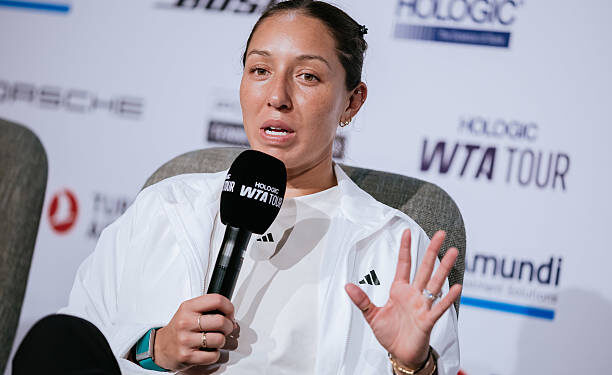Jessica Pegula has become a fixture in the WTA’s top 10, admired for her steady game and calm demeanor. But as her Grand Slam drought continues, critics are now turning their attention to a growing concern: her mental game.
Despite consistently reaching the latter stages of major tournaments, Pegula has yet to advance beyond the quarterfinals in any Grand Slam. Her repeated struggles to close out high-stakes matches have ignited questions about whether she has the mental toughness required to break into the sport’s elite tier.
“She’s got the tools, no doubt,” said one former pro turned analyst. “But when the pressure ramps up, something in her game—and her body language—tightens. That’s not a physical issue. That’s mental.”
This narrative gained more traction after her recent Australian Open quarterfinal loss, where she squandered a one-set lead and multiple break points. The loss marked her seventh Grand Slam quarterfinal exit, fueling criticism that she may not have the killer instinct required to win it all.
Pegula has acknowledged the pressure in past interviews, admitting that she’s still learning to manage expectations—both external and self-imposed. But with younger, hungrier players rising fast, time may be running out for her to convert consistency into championship hardware.
“She plays not to lose instead of to win,” one commentator said bluntly during a post-match breakdown. “And at the highest level, that mindset doesn’t cut it.”
With the French Open on the horizon, the spotlight on Pegula has never been sharper. If she hopes to silence the critics, she’ll need more than clean groundstrokes—she’ll need the mental edge that separates contenders from champions.














